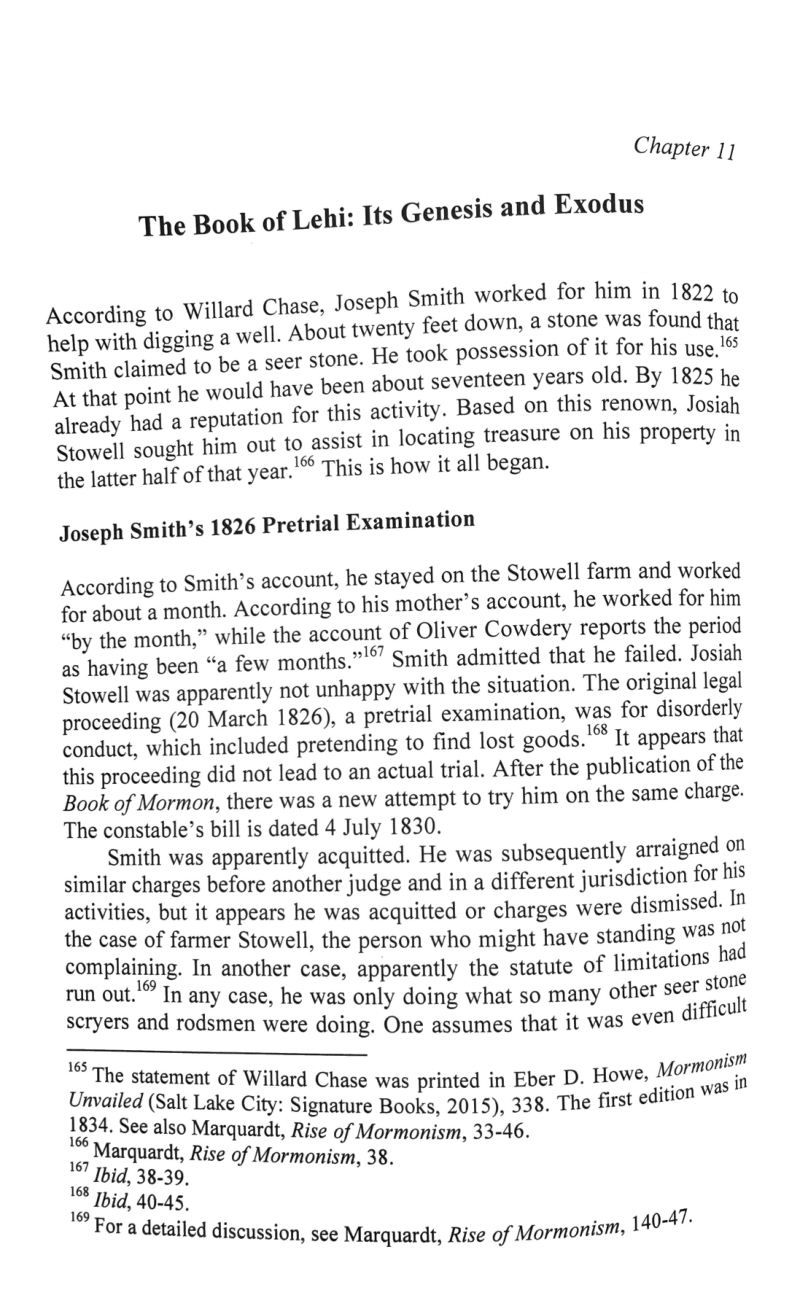Arthur Chris Eccel claims that "it appears that the proceeding [in March 1826] did not lead to an actual trial."
- Type
- Book
- Source
- Arthur Chris Eccel DisaffectedCritic
- Hearsay
- Direct
- Reference
Arthur Chris Eccel, Mormon Genesis (Hilo, Hawaii: GP Touchstone, 2018), 265-66
- Scribe/Publisher
- GP Touchstone
- People
- Arthur Chris Eccel
- Audience
- Reading Public
- Transcription
Joseph Smith’s 1826 Pretrial Examination
According to Smith’s account, he stayed on the Stowell farm and worked for about a month. According to his mother’s account, he worked for him “by the month,” while the account of Oliver Cowdery reports the period as having been “a few months.” Smith admitted that he failed. Josiah Stowell was apparently not unhappy with the situation. The original legal proceeding (20 March 1826), a pretrial examination, was for disorderly conduct, which included pretending to find lost goods. It appears that the proceeding did not lead to an actual trial. After the publication of the Book of Mormon, there was a new attempt to try him on the same charge. The constable’s bill is dated 4 July 1830.
Smith was apparently acquitted. He was subsequently arraigned on similar charges before another judge and in a different jurisdiction for his activities, but it appears he was acquitted or charges were dismissed. In the case of farmer Stowell, the person who might have standing was not complaining. In another case, apparently the statute of limitations had run out. In any case, he was only doing what so many other seer stone scryers and rodsmen were doing. One assumes that it was even difficult to find a statute that specially applied. Nullum crimen sine lege. The details of the trials are not important here. The cases indicate the extent to which Joseph Smith Jr. was involved in gold hunting with his seer stone.
- Citations in Mormonr Qnas
The B. H. Roberts Foundation is not owned by, operated by, or affiliated with the Church of Jesus Christ of Latter-day Saints.

